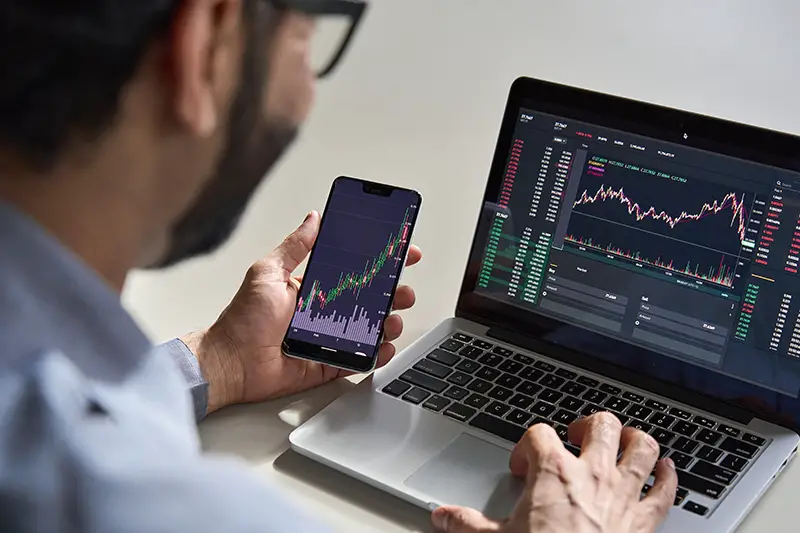Click here to get this post in PDF
There are several reasons why most traders lose money on the exchange. Some of them are directly related to trading processes, while others are related to near-market factors.
The main problem for traders is that they immediately try to trade for large amounts, without giving any importance to the choice of a broker.
The first thing to start with is choosing a reliable broker. Trading itself is a complex activity, so why burden yourself with any additional risks?
Choosing a broker
First of all, you need to weed out scam brokers. These include companies offering services for trading the so-called binary options. As well as those who do not have any licenses to conduct such activities. The most difficult from the point of view of forecasting is the Forex market, so it is not recommended to start trading here.
Reliance on tutorials
A lot of traders are under the illusion that watching several tutorials can immediately turn them into trading gurus. Such an attitude is instantly doomed for failure. First of all, alongside tutorials, you will need a good amount of practice and experience. Without being involved in the trading process directly, the theory is useless. Of course, it is a good idea to read different books, analyze various information, but practice is the key. To avoid issues, click to learn more on the following link, where thorough details will be available about FX trading.
Many open positions
Novice traders often hold several open positions, moreover, in different markets at the same time. This leads to overtrading and overuse of leverage in their trading account. Once the market goes against them, they will quickly lose all their funds. It is not difficult to open many positions, especially when a trader is trading different instruments, for example, currency pairs and commodity futures. But you need to make sure that your trading account can “survive” such a trade.
Saving unprofitable positions
Novice traders tend to sit in unprofitable positions for too long. An experienced trader will take a small loss and exit a bad trade. He or she knows that the “hold and hope” method only binds his capital for a long time. You’ve probably heard about the need to quickly cut off losses and allow profits to grow. It is better to get a small loss right away than a larger one later.
Improper use of leverage
Novice traders often misunderstand the terms “leverage” and “margin”. Both can both benefit and increase the risks, so you need to learn how to use them correctly. The leverage is a double-edged sword. It increases risks and increases the cost of transactions. The higher the leverage, the higher your trading costs. As the balance of the trading account decreases, the leverage also decreases, and the cost of transactions can quickly eat up a small account.
Finding a profitable trading system
If the first stage is not particularly difficult, then there will be great difficulties in finding a trading system. Why is that?
More or less stable earnings can only be provided by a systematic approach based on a profitable trading system. By itself, systemic trading is not yet a guarantee of profitability, because you can systematically merge into a minus.
And even if a trader has a profitable system, it also does not give any guarantees for a positive outcome. Why? Because, firstly, perhaps the trader considered too short a period for collecting statistical data, and after the market changes, the trade will give a minus. Secondly, no one has canceled psychology, because the rules of the trading system still need to be strictly observed, and not everyone can do this, especially when a series of losing trades begin.
Psychology
If there is no trading system and the trader is losing money at the same time, then it is not psychology that is to blame, but laziness. But if a profitable trading system was found by analyzing a large number of transactions in history, and at the same time the trader cannot follow the algorithm, then it can be argued that the matter is in psychology.
It should be emphasized again. We need to talk about psychology only if the trader already has a profitable trading system, and nothing else.
How to deal with negative emotions?
1. It is important to understand that trading is not one deal, but a series, so you do not need to worry too much about every minus. Often traders lose money on the stock exchange precisely because of such an inappropriate attitude towards losses.
2. It makes no sense to look at the chart after opening a position. You need to take profit and stop loss and close the chart. The price does not move linearly, constantly fluctuating in one direction or the other, and if you watch this chaos, you will not have enough nerves.
3. In no case should the risk per trade be exceeded, even after a series of losses. Excessive risks directly affect psychology.
You may also like: Trading As A Career: Everything You Need To Know
Image source: Shutterstock.com

